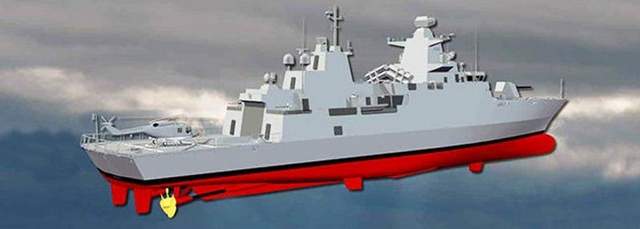
TEL AVIV – Israel is backing away from a long-anticipated ship deal with Germany after failing to secure Berlin’s commitment to share some of the costs of the estimated $500 million buy.
Instead, defense and industry sources here say Israel’s Defense Ministry is opening its four-ship offshore patrol vessel (OPV) procurement to international bidders, with requests for proposals likely by summer’s end.
“The German option is off the table… They’re not willing to contribute funding and, on top of that, the price they proposed is unacceptably high,” said a retired Israel Navy admiral familiar with the discussions.
“After more than two years, it’s back to the beginning,” he said. “MoD is moving ahead with an international bid.”
A recently retired, high-ranking MoD official confirmed the “setback” with Germany and preparations underway to compete the program. He declined, however, to speak on record or to provide details.
“Nobody wants to talk about it; it’s too sensitive,” he said.
Officials from both countries refused comment on the setback, which several sources attributed, on condition of anonymity, to German Chancellor Angela Merkel’s anger at the collapse of US-led Israeli-Palestinian peace talks.
The Israeli MoD referred all questions to the office of Prime Minister Benjamin Netanyahu, where spokesman David Baker responded, “We have nothing to offer on your query.”
Boris Nannt, a spokesman at the German Defense Ministry, said the Ministry of Economy was responsible for this issue, but a press liaison there referred queries to the Federal Foreign Office.
In a written reply, Konrad Lax said, “The Federal Foreign Office cannot comment on issues concerning contracts involving private companies. Neither can it provide information on financing issues.”
Israel’s interest in customized versions of the German-built Meko A-100 has been a top item on the bilateral defense trade agenda since 2009, first in stretch form as a low-cost alternative to the US littoral combat ship and more recently as a 1,400-ton platform for patrolling offshore energy assets.
The Meko ships are built by ThyssenKrupp Marine Systems, the same Hamburg-based consortium contracted for Israel’s six, heavily German-subsidized, Dolphin-class submarines. In four separate agreements going back decades, Germany agreed to fully fund the first two submarines, split costs of the third, and underwrite the last three submarines by about 30 percent.
As in the Dolphin deals, Israel had been pressing for a memorandum of understanding (MoU) committing Berlin to partially fund the OPV deal.
Israel based its cost-sharing case on the special security ties forged from the flames of World War II and the economic benefit to Germany’s shipbuilding sector as a result of the technology and knowhow it contributes to the customized builds.
But the Israeli OPV financing request languished for years as ties between Merkel and Netanyahu grew increasingly strained, primarily over Israel’s West Bank settlement policy.
Both countries deny direct linkage between Israel-German security cooperation and progress, or lack thereof, toward Israeli-Palestinian peace.
“There’s no direct linkage,” a German diplomat said. “But surely the political issue has clouded the bilateral relation and some things are not progressing as smoothly as they should.”
He noted that Merkel has repeatedly insisted that Germany’s commitment to Israel’s security is non-negotiable. At the same time, however, “The chancellor has been forceful in urging the Israeli government to take tough, but necessary decisions for peace.”
Sources here point out that Israeli-German cost-sharing talks began to gain traction late last year as Netanyahu overcame intense domestic opposition over Palestinian prisoner releases and appeared ready to support the US-led peace drive.
By January, the financing issue had been elevated to Cabinet-level discussion, first in Berlin at a Jan. 30 meeting of Israeli and German defense ministers and again in late February, when Netanyahu hosted Merkel and most of her Cabinet in Jerusalem.
In an interview following the German Cabinet visit here, an Israeli Navy admiral was optimistic about near-term conclusion of a cost-sharing agreement.
“We’re in the final stages of this story. It’s now up to the head of the [National Security Council] to sign the MoU, and we understand it will happen shortly,” said the top admiral on the Israel Navy staff.
He noted that a November 2013 Israeli Cabinet decision approved the new Navy mission of defending the nation’s economic waters, along with 2.3 billion shekels (US $670 million) for the ships – including radar and full combat suites – needed to patrol offshore energy assets.
“Once they sign the MoU, it will take us only a few months to finalize contracts and start the procurement process,” the admiral said.
But in early April, negotiations hit a dead-end when German counterparts informed a visiting delegation of Israeli National Security Council, MoD and Navy representatives not to expect funding participation from Berlin.
At the time, it was clear that the US-led drive toward a two-state deal were about to collapse.









